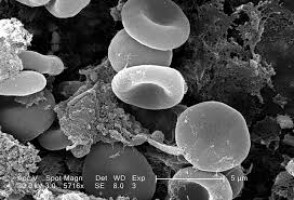
Messenger particles released by leukaemia cells use a chemical modification on their surface to navigate a route to distant sites, where they release molecular cargo that lays the groundwork for the blood cancer’s spread.
The findings, from mouse and cell experiments conducted at KAUST, help explain one of the drivers of cancer metastasis. Moreover, they highlight a potential therapeutic strategy for combatting the progression of leukaemia.
The researchers showed that just like leukaemia cells themselves, tiny packets of molecular cargo that the cells shed from their surface depend on an adhesion molecule called E-selectin to bind and travel to tissues throughout the body.
These packets, known as exosomes, contain genetic material and signalling proteins that can promote cancer growth and survival through mediating modifications in the recipient cells. But they can only do so when surface proteins found on the exosomes have been decorated with a complex sugar molecule called sialyl Lewis X.
With this adornment, “leukemic exosomes act as a kind of blueprint to altering the foundations in a way that makes the environment more friendly for future metastasis,” says Ioannis Isaioglou, Ph.D. student and the first author of the study.
But without it, Isaioglou and his colleagues found, exosomes cannot deliver the messages needed to promote cancer-fueling gene expression in recipient cells — and an antibody drug that blocks E-selectin activity has the same effect. In mice, such a drug therapy helped to prevent leukaemia cells from taking root in the spleen and spine, common sites of leukemic spread.
“This points to the potential importance of focusing on exosomes as a way of reducing metastasis,” says cell biologist Jasmeen Merzaban, who led the research project as part of a collaboration with KAUST bioengineer Khaled Salama and microscopist Satoshi Habuchi.
Of note, there is currently a drug candidate called Uproleselan, a small molecule inhibitor of E-selectin, in late-stage clinical testing for patients with advanced leukaemia. Earlier trial data looked promising, and the laboratory results from Merzaban’s team could help to explain why the drug seems to be helping patients live longer.
The study also documented a flexible feature of exosomes. Though long thought of as passive delivery vehicles, exosomes can actually change what contents they distribute depending on what molecules they bind to on target cells. “This is the first time research has shown exosomes to have such a dynamic role in transporting cancer communications to new locations,” Merzaban says.
That sophisticated function now deserves more attention, she says, given the critical roles that exosomes play in cancer progression.
Source: King Abdullah University of Science & Technology (KAUST)